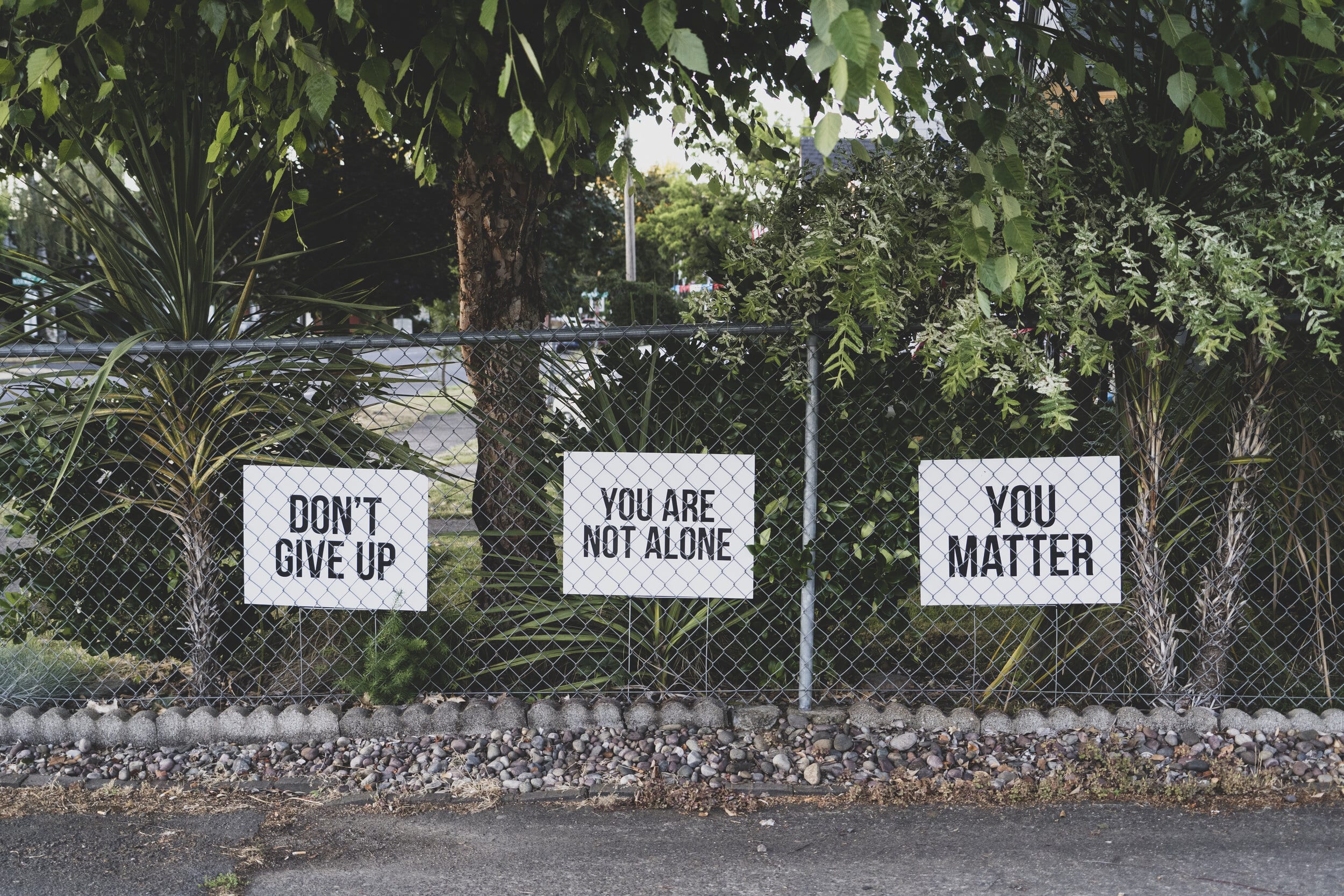
Opinion: The silent fight – bringing mental health into the light
Samantha Martin, Staff Writer
Photo courtesy of Unsplash.com.
The views and opinions expressed on in this article are solely those of the original author. These views and opinions do not necessarily represent those of The Vision NGU or North Greenville University.
Mental illness in today’s society is less stigmatized than it was nearly a century earlier. However, nearly 1 in 5 adults still live with mental illness, falling under two broad categories for mental illness; any mental illness and severe mental illness.
As of 2017, an estimated 46.6 million adults 18 and over in the United States had been diagnosed under the AMI (any mental illness) umbrella. these results were higher among women and had the highest impact on the 18 to 25 group at 25.8 percent of young adults suffering from AMI.
Among the 46.6 million with AMI, only 42.6 percent received mental health services in the past year.
Although young adults aged 18 to 25 had the highest prevalence of AMI at 25.8 percent, only 38.4 percent of young adults receive mental health services in the past year; this puts them lower than both the population of adults age 26 to 49 and adults 50 and over receiving mental health services respectively 43.3 percent and 44.2 percent.
Other studies have shown that 36.4 percent of college students report experiencing some level of depression, with depression being the number one reason that students drop out of school.
So, if more national attention has been dedicated to understanding and to developing mental health services, why is it still such a struggle for some college students to face? Colleges for years have been providing counseling and other services to encourage students to seek mental help and yet it’s still such a struggle.
But when attending a Christian university, the struggle may be even more intense. At times, people point to mental illnesses as a reprimand or punishment from sin or failures in our faith. But this is not the case.
�Equating someone�s depression with mental instability brought about by God as a punishment is like equating a cancer diagnosis with God striking down King Herod for denying him glory. Mental illness is not a punishment,� said Susan Roberts, writer for care-net.org.
I found it challenging to write this article, as I have had to face the worry and fear of sharing about my own mental health. It�s a difficult task, to ask someone to be so vulnerable when they don�t know how people will receive what they are saying.
I recently shared with my mother about Pastor Alex Sands who spoke in Chapel last semester. He shared hard truths about his own struggles with mental illness, referencing a time in his life where he had thoughts of suicide.
A way to get out without making anyone realize, a way to get out and make it look like an accident. He spoke about his diagnosis with bipolar disorder.
And as I’m getting ready to express to my mother that at one point in my own life, I had a very similar plan, and that I�m concerned for my own mental health, she looks to my aunt and says �I don’t understand how someone could get so messed up that they have a plan like that.�
So I did what I always do, I bit my tongue and carried on like everything was fine.
And in the same breath, my mother even had the thought that a person with mental illness could not lead a congregation. That a person with some imperfection in their mental makeup could not lead a group of people in faith and trust, because mental illness showed a lack of faith, a lack of trust in their creator to make everything okay. Sands struggled with that fear himself.
�I�m a pastor of a growing church, and nobody wants a bipolar pastor,� Sands said.
But mental illness does not mean you have a lack of faith. Mental illness is a trial that some have to face in their life.
The book of James [James 1:2-4, ESV] tells us to �Count it all joy my brothers when you meet trials of various kinds for you know that the testing of your faith produces steadfastness. And let steadfastness have its full effect that you may be perfect and complete lacking in nothing,�
Mental health is a trial, and sometimes it is a daunting thing to face alone. But thankfully, that�s something students don�t have to do.
North Greenville offers counselors on campus, Steve Bielby, THM, LPC, and Sara black MA. Their purpose is to �help individuals become whole emotionally relationally spiritually psychologically physically and academically.�
But for those worried about reaching out so close to home, there are other options. Speak with your primary care provider as they can be an important help in providing mental health screenings and referrals to mental health specialists.
Look at the substance abuse and mental health services administration website (SAMHSA), It would provide valuable information for those struggling with mental health or substance abuse.
If you feel like you’ve been pushed to the brink and you feel like you may be having suicidal thoughts or actions call the national suicide prevention lifeline at 1-800-273-8255 (en Espanol at 1-800-628-9454).
Help is out there it’s just a matter of reaching out.

